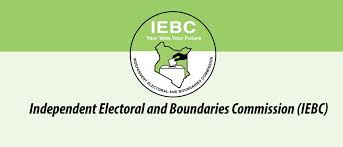Securing an interview is a significant milestone in your career journey — but it’s only the beginning. In Kenya’s competitive job market, landing an interview can be just as challenging as performing well during it. Whether you are a fresh graduate, a young professional, or an experienced job seeker, understanding how to prepare, present, and impress is critical. This comprehensive guide offers practical, professional advice tailored to Kenyan job seekers, helping you navigate interviews with confidence and competence.
Why Interview Skills Matter
In Kenya, employers often use interviews to evaluate not only your qualifications but also your communication skills, cultural fit, and problem-solving abilities. According to recruitment trends observed on platforms like BrighterMonday, Fuzu, and NiJob, interviews remain a decisive step in the hiring process, with many candidates being eliminated due to poor preparation, nervousness, or an inability to articulate their skills effectively.
An interview is your opportunity to:
- Showcase your knowledge, skills, and accomplishments
- Demonstrate professionalism and confidence
- Prove your understanding of the role and the company
- Make a lasting impression that sets you apart from other candidates
Preparing for Your Interview
Preparation is key. Kenyan employers appreciate candidates who are well-researched and organized, so invest time before the interview to ensure you are ready.
1. Research the Company
Understanding the organization shows initiative and genuine interest. Key points to research include:
- Company history, mission, and values
- Recent projects or initiatives
- Key competitors and market position
- Company culture and work environment
Tip: For Kenyan organizations, also consider the company’s role in the local market or community projects. For example, if interviewing at Safaricom, familiarize yourself with their CSR initiatives or recent technological innovations like M-PESA updates.
2. Understand the Role.
Study the job description carefully and identify:
- Core responsibilities
- Required skills and qualifications
- Key performance indicators
Be ready to explain how your experience aligns with these requirements. Use specific examples from previous work, internships, or volunteer roles to demonstrate competence.
3. Practice Common Interview Questions.
Some commonly asked questions in Kenya include:
- Tell me about yourself.
- Why do you want to work for this company?
- What are your strengths and weaknesses?
- Describe a challenging situation and how you handled it.
- Where do you see yourself in five years?
Practice your answers but avoid sounding rehearsed. Use the **STAR method** (Situation, Task, Action, Result) to structure responses for competency-based questions.
4. Prepare Questions for the Interviewer
Employers appreciate candidates who ask thoughtful questions. Examples include:
- “What does success look like in this role?”
- ”How does the company support professional growth?”
- “Can you describe the team I would be working with?”
Avoid questions about salary or leave in the initial interview unless prompted.
Professional Presentation.
In Kenya, professional appearance and demeanor carry significant weight. How you present yourself can influence the interviewer’s perception before you even speak.
1. Dress Appropriately.
- Corporate roles: suit or formal business attire
- Creative or tech roles: smart casual, but neat and professional
- Ensure clothes are clean, ironed, and fit well
2. Punctuality.
Arrive at least 15–20 minutes early. Tardiness is often seen as unprofessional. For virtual interviews, log in early to check internet connectivity and camera/microphone functionality.
3. Body Language.
Non-verbal communication is critical:
- Maintain good posture.
- Offer a firm handshake (if culturally appropriate).
- Make eye contact, but avoid staring.
- Smile naturally to convey confidence and approachability.
During the Interview
1. Communicate Clearly.
Speak confidently, avoid filler words, and articulate your points concisely. Kenyan employers value clarity, especially for client-facing or team-oriented roles.
2. Showcase Achievements.
Highlight specific accomplishments, ideally with measurable results. For example: “During my internship at Equity Bank, I assisted in developing a social media campaign that increased engagement by 25% within two months.”
3. Demonstrate Problem-Solving Skills
Be prepared to answer scenario-based questions. Use examples that show your ability to analyze, adapt, and deliver solutions.
4. Align with Company Values
Kenyan organizations often value teamwork, integrity, and community orientation. Reflect these values in your answers where appropriate.
Handling Different Interview Formats
In Kenya, you may encounter:
1. Face-to-Face Interviews
Traditional but still common. Focus on professional demeanor, eye contact, and verbal clarity.
2. Panel Interviews
Multiple interviewers may ask questions simultaneously. Address each person respectfully, and engage all panel members while responding.
3. Telephone Interviews
Often a preliminary screening. Speak clearly, keep your CV handy, and eliminate distractions.
4. Video Interviews
Increasingly common, especially for tech-savvy or remote roles. Check lighting, background, and audio quality. Dress professionally and maintain eye contact via the camera.
After the Interview.
1. Follow Up
Send a concise, polite email thanking the interviewer for their time. Reiterate your interest in the role and briefly remind them of your qualifications.
Example
“Dear [Interviewer Name], thank you for the opportunity to discuss the [Job Title] position at [Company]. I enjoyed learning more about your team and projects, and remain enthusiastic about contributing my skills to your organization. I look forward to your feedback.”
2. Reflect and Improve
Evaluate your performance. Identify strengths and areas for improvement to enhance future interviews.
3. Stay Patient
Kenyan hiring processes can sometimes take weeks. Avoid repeated follow-ups but check in politely if there’s no response after a reasonable period.
Tips for Young Professionals and Graduates in Kenya
1. Leverage Internships and Volunteer Work: Employers often consider practical experience as critical, especially for graduates.
2. Network Effectively: Attend career fairs, workshops, and professional events in Nairobi, Mombasa, Kisumu, and other cities to connect with industry professionals.
3. Use Local Job Platforms: Nijob, and LinkedIn Kenya offer tailored opportunities and advice.
4. Stay Updated on Industry Trends: Employers value candidates who understand the Kenyan market landscape, including emerging industries like fintech, agritech, and renewable energy.
5. Demonstrate Soft Skills: Communication, teamwork, adaptability, and problem-solving are highly regarded.
Common Interview Mistakes to Avoid in Kenya
- Arriving late or unprepared
- Dressing inappropriately
- Failing to research the company
- Talking negatively about previous employers
- Giving vague or generic answers
Avoiding these mistakes shows professionalism and respect for the interviewer’s time.






